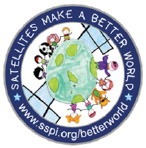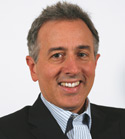 The uncomfortable co-existence among science, technology and religion is a few centuries old. For a long while the three disciplines tried to stay in their own lane and tried to avoid swerving into the others’ lane. But a collision was inevitable. The crash has given us a toxic political and social climate at times, and made us mistrust each of the three disciplines.
The uncomfortable co-existence among science, technology and religion is a few centuries old. For a long while the three disciplines tried to stay in their own lane and tried to avoid swerving into the others’ lane. But a collision was inevitable. The crash has given us a toxic political and social climate at times, and made us mistrust each of the three disciplines.
But it has finally occurred to us – or is at least occurred to those of us in the satellite industry - that we are all on the same road and irreversibly headed in the same direction.
As is typically the case, however, someone needed to create the narrative – or the music – to reveal this.
It was the space and satellite industry.
I never understood why people lower their heads when they pray. Looking up to the heavens seems to be pointing the brain where the real action and joy are residing. Studies show that having your head down, buried in a device, can cause depression and anxiety while raising it can, well, make you feel better.
So that the intention when SSPI launched its “Better Satellite World” campaign www.bettersatelliteworld.com. To enable our industry and those who show the promise to be a part of it to look up and see the Good.
SSPI’s UK chapter, with the help of Milbank Law, supported the idea to host a dinner to give visibility to the happy collision of business and social altruism by identifying satellite companies, personalities and organizations whose work literally makes the world a better place.
Mission accomplished.
Through this program and the UK dinner we have allowed the better angels of our nature to stop ducking every time an Ariane whizzes by. We accept that we have the technology that can do mighty good in a world that is often mightily in need of something good.
 The benefits to humanity were articulated wonderfully by Karen Bhatia, an executive with New York’s Economic Development Corporation during Google’s celebration of the Apollo 11 mission in July. At this star-studded event, which included María Fernanda Espinosa Garcés, the president of the UN General Assembly, astronauts Dr. Yvonne Cagel, New York’s own Charles Camarda, Overview Effect author Frank and XPRIZE CEO Anousheh Ansari and many, many others, Ms Bhatia eloquently scrolled down a long list of technologies that have emerged from the Apollo 11 program and subsequent NASA missions.
The benefits to humanity were articulated wonderfully by Karen Bhatia, an executive with New York’s Economic Development Corporation during Google’s celebration of the Apollo 11 mission in July. At this star-studded event, which included María Fernanda Espinosa Garcés, the president of the UN General Assembly, astronauts Dr. Yvonne Cagel, New York’s own Charles Camarda, Overview Effect author Frank and XPRIZE CEO Anousheh Ansari and many, many others, Ms Bhatia eloquently scrolled down a long list of technologies that have emerged from the Apollo 11 program and subsequent NASA missions.
The short list includes camera phones, wireless headsets, scratch resistant lenses, CAT scans, LEDs, water purification systems and smoke detectors. Although in the field of economic development for America’s largest city, Karen said that her greatest inspiration to do her current work came after she shook hands with astronaut Buzz Aldrin, the second of our species to step on the dusty lunar surface.
SSPI was given an Achievement Award that night for our campaign for its work. I accepted on behalf of SSPI’s board of directors, members, chapters and management.
The night was reminiscent of the evenings in London when we celebrate our Better Satellite World Award recipients each December. It is rare that an industry has a mission that by its nature includes making the world better.
In the Catholic tradition in which I was raised there was a mandate that was both stated and implied. It was to try to leave the world, which somehow has “fallen,” with the tools and inspiration to rise again. To make it better by a millimeter or two than we found it and to create a path for others to ascend.
It’s a big ask but Creation works in mysterious ways. It is satellites and the new manifest destiny of all of us reaching out into the universe by way of a commercialization and innovation that is guiding us on this most unusual marriage of the angels and the Arianes, Falcons and New Shepards.
Making the world better also implies a mandate to make it more beautiful. And the same instincts are at work through innovators of all kinds. I am thinking of the great British innovator David Austin.
“Who,” you ask, “is David Austin?”
The English will know that he is the great horticulturist who spent most of his 92 years chasing the creation of a better world through the ideal rose. Along the way this self-taught founder of David Austin Roses created over 200 hybrids of the world’s flower of romance and affection, distinguishable by their broad color range, fragrances and blossoms.
Mr. Austion died in 2018 but once said something that, like Buzz Aldrin’s handshake with Karen, has been planted in me like his Charles Darwin yellow cupped bloom hybrid.
“I was never influenced by what other people said or thought. I’m slightly dyslexic and I think I make connections that others do not.”
I can think of no better phrase to describe our efforts, as an industry, to enable this preposterous notion that we can continue to make a better world by joining the poetic to the technical.
NOTES:
You have until September 30 to send in your nomination for the Better Satellite World awards. https://www.sspi.org/cpages/better-satellite-world-awards-dinner-demo
And do register for the 2 December dinner in London. See https://uk.sspi.org/events/the-better-satellite-world-awards-2018 for details.
And if you are in New York on September 27, please come on board the Intrepid Air & Space Museum (at no cost), for the first of a series of panels on “Innovators.” Yours truly has been invited to moderate a panel on how our industry and New York is becoming “the New Houston.” https://www.sspi.org/events/innovators-new-york-the-new-huston
-----------------------------------------
 Lou Zacharilla is the Director of Innovation and Development of the Space and Satellite Professionals International (SSPI). He can be reached at: LZacharilla@sspi.org
Lou Zacharilla is the Director of Innovation and Development of the Space and Satellite Professionals International (SSPI). He can be reached at: LZacharilla@sspi.org





